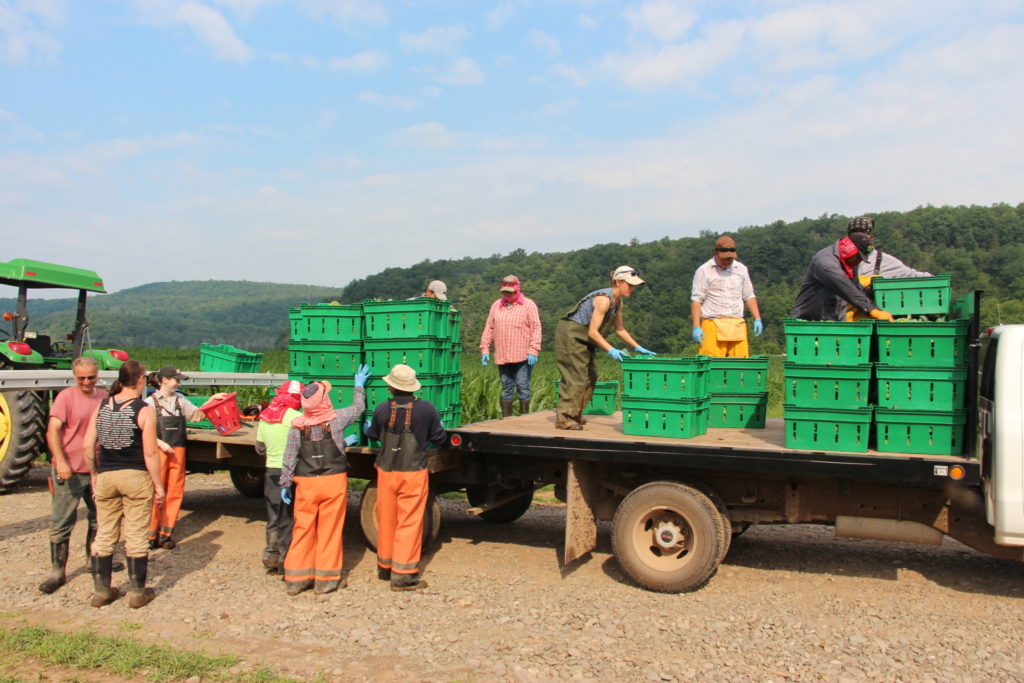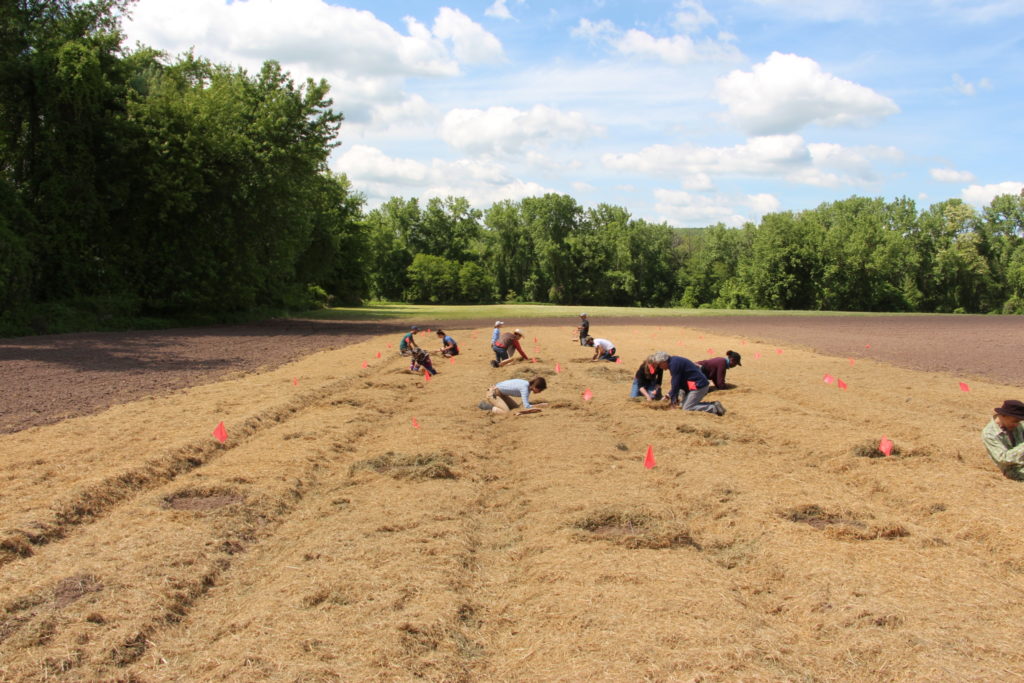What’s happening at the Hudson Valley Farm Hub? Now in its fourth season, the Farm Hub is growing up in more ways than one, with a range of activities geared towards our vision for a resilient food system.
Cover crops are essential agricultural tools for increasing biological activity and water retention in the soil, mitigating erosion, controlling pests, and increasing overall farm diversity. Cover crops also provide an alternative to chemical inputs. As part of an initiative to test the effectiveness of different cover crops, the Farm Hub is planting a variety, including sweet clover, rye, vetch, and Japanese millet. In the vegetable fields, select cover crops are being planted on a rotating schedule with crops such as potatoes and broccoli.
This year the Farm Hub’s ProFarmer Program welcomed five new trainees. Since arriving in April, the five new trainees have been immersed in Farm Hub vegetable production and tractor training while becoming acclimated to Farm Hub operations. ProFarmers are have also been visiting farms and attending workshops around the region. The first of these field trips took place on a Saturday in May, when ProFarmers and field staff attended a Community Farm Day at Soul Fire Farm in Petersburg, NY, volunteering in the fields and sharing a potluck meal. Soul Fire is an educational farm focused on training and empowering Black, Latinx, and Indigenous growers and youth.
In June, ProFarmers attended a certificate training with Cornell Cooperative Extension on the Food Safety Modernization Act (FSMA) and Good Agricultural Practices (GAPs), and in July they traveled to Pennsylvania for the Rodale Institute’s Field Day. Rodale’s is the longest-running U.S. trial pairing organic with conventional agriculture in a side-by-side comparison. This trial is expected to go on for more than two decades and will monitor factors such as soil health and environmental impact.
Last fall, the Farm Hub planted Kernza, a perennial grain that promises significant ecological benefits. This 20-acre trial is taking place at the Farm Hub in partnership with a Kansas-based organization, The Land Institute. Representatives from The Land Institute visited the Farm Hub in May and June to evaluate the Kernza’s growth and analyze factors that might impact yield. The first harvest of Kernza will take place in mid-August.
The Farm Hub’s Native American Seed Sanctuary, a project run in partnership with the St. Regis Mohawk/Akwesasne Tribe of northern New York and the Hudson Valley Seedshed, is now in its second year. Farm crew members, Profarmers, and friends of the Farm Hub hand-planted Native American varieties of beans, Buffalo Creek squash, and Mohwak Red Bread corn in May. The seeds from the harvest of these crops will be returned to the St. Regis Mohawk tribe in northern New York this fall.
The Farm Hub is continuing its partnership with the Hawthorne Valley Farmscape Ecology Program and its collaborators. These efforts are aimed at answering two related questions:
- What impact are the Farm Hub’s activities having on its soil and adjacent waters?
- How can on-farm habitat management enhance both the abundance of agriculturally beneficial creatures and the conservation of biodiversity?
Water quality is being addressed through the work of SUNY New Paltz Professor Shafiul Chowdhury. Professor Chowdhury and his students are monitoring surface water conditions on and around the Farm Hub’s fields. By comparing results to historical data, this team will explore how recent changes in land management at the Farm Hub may be influencing the water quality of the Esopus Creek.
The study of habitat management involves both on-site and off-site work. In partnership with the Xerces Society for Invertebrate Conservation and the Hawthorne Valley Farmscape Ecology Program, trial plots have been established at the Farm Hub to test wildflower seed mixes intended to stabilize soil and improve habitat for beneficial insects. Field Technician Anne Bloomfield is following bird communities as the Farm Hub’s field management evolves. Simultaneously, plantings on four additional farms in the region are illuminating the ways in which habitat management influences in-crop insect communities.
Through these activities, the team hopes to document the importance of under-valued habitats, suggest new approaches that can be tested at the Farm Hub, and eventually share ideas with other growers. For more information about the Farm Hub’s research trials, click here.
Receive updates from the Farm Hub by following our Facebook page.



